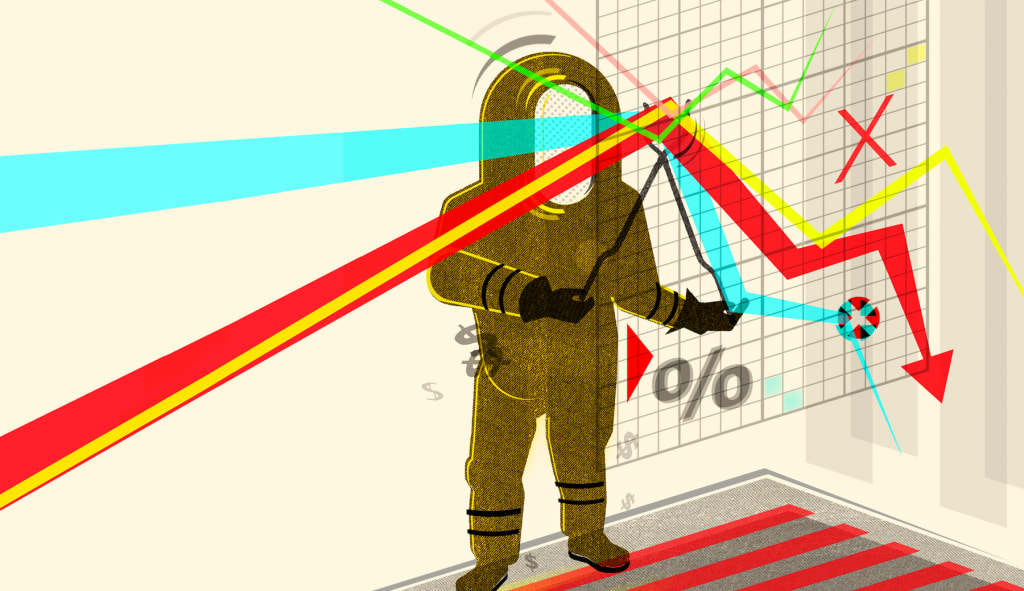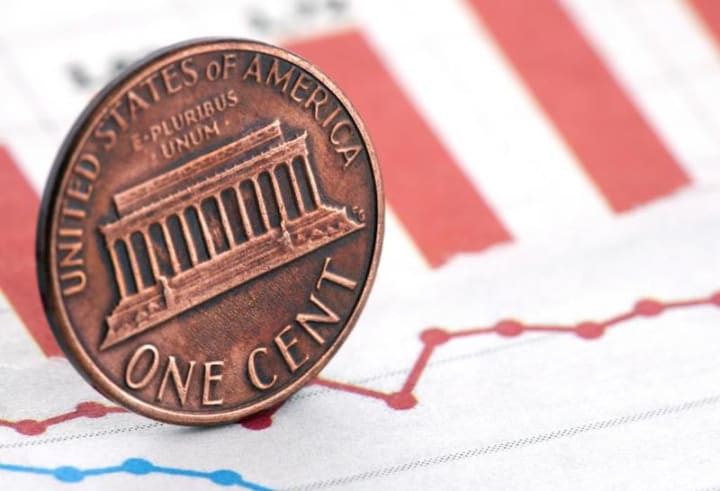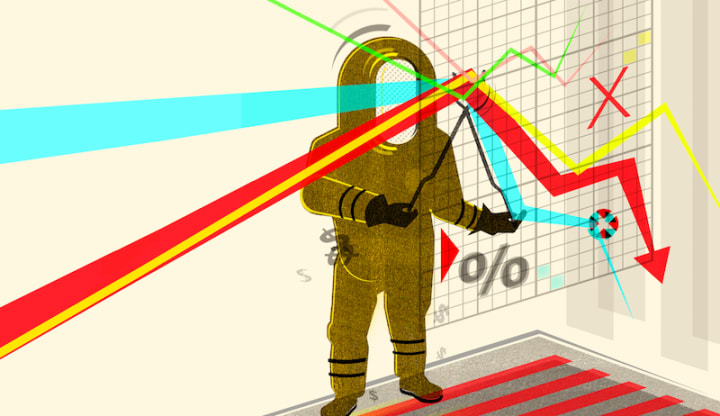Most Dangerous Investments You Can Make
Want to have a good chance of seeing your money vanish? Then try your hand with the most dangerous investments you can make—and go broke trying.

There's something really thrilling about investing in something that you know is shaky. When it succeeds, you feel a rush like nothing else. When it fails, though, you tend to beat yourself up and ask yourself why you'd do such a thing. Truth be told, danger is fun—but it can also wipe you out.
In no place is this more true than the world of investing. A good (but counterintuitive and risky) investment can make your bank account skyrocket. A dangerous one can leave you broke, or even arrested.
There's the potential to make money in any investment route, some are truly a fool's errand in most cases. Ever wonder what the most dangerous investments people make are? Studies show that these are the biggest offenders are the ones below,
Commodities Futures

Commodities are one of the riskiest investments you can make, especially when we're talking about commodities futures. Commodities futures are investments in the future purchase of raw materials or goods such as precious metal. It sounds simple, but it's one of the most dangerous investments you can make.
The Risk:
This category of investments are so volatile that the government actually had to step in an impose maximum "caps" on how much prices can change in a single day. That alone should tell you volumes about the risk.
To make matters worse, commodity investing is often seen as an "institutional" investment. This means that the tools you'd need to make sound decisions aren't out there, but will be in the hands of bigger banks. So, you're pitting yourself against big banks with less capital and fewer tools in most cases.
Most professionals will tell you that they advise individual people against investing in commodities unless you have a lot of time and a lot of money. To pull a profit, you need serious research—and oftentimes, a killer instinct for industry change.
Collectibles and Art
Perhaps one of the most creative ways to invest your money would be to check out your ability to get collectibles. Collectors are known for spending hundreds, if not thousands, for rare toys, artwork, or even pieces of clothing.
To invest, all you have to do is buy an item and keep it in pristine condition. Then, when value increases, you sell it off.
The Risk:
Collectibles are a volatile market that can easily die out. A good example of this was the Beanie Baby investment disaster of the 90s, which probably bankrupted at least one or two housewives.
A better example? Check out what happens during a financial crisis to the values of collectibles. Since many people need money fast, the price drops because the collectibles that people want to sell are flooding the market.
Leveraged Oil ETFs

The other commodities-based investment that ranks highly among the most dangerous investments you can make are leveraged oil ETFs. These are oil- and petrol-based trade funds that basically take commodities futures and put them into a stock form.
The Risk:
This is a double whammy in terms of risk and that's primarily what makes it such a dangerous choice on the stock market. Oil is notorious for fluctuations in price, and since these ETFs are also heavily traded, the fluctuations are extremely exaggerated.
Like many of the investments here, this can give you good returns. Some ETFs have had price increases by 190 percent in a single year. Yet, for every big winner, there's a loser, too. So, be careful if you do decide to try this out.
Initial Public Offerings (IPOs)
You might know IPOs because Facebook had one—and many others, too. Initial Public Offerings are the first sale of stock that's open to the public. This is a time when the stock is typically sold at a discount, with public offerings later on at a greater price.
Though Facebook fared well with it, IPOs can be pretty bad investments.
The Risk:
What makes the IPO one of the most dangerous investments for newbies is that companies often don't really deliver what they promise in terms of value appreciation. In a lot of cases, the money you put in does a "dead cat" bounce then shrinks to its more realistic level after a bit.
Penny Stocks

A penny stock is a stock that costs under a dollar, and is publicaly traded on the stock market. This is a notoriously risky choice, and in most cases, it's one that doesn't really pay off well. It's why Futurama actually joked about idiots investing all their cash in penny stocks.
The Risk:
It doesn't take a rocket scientist to figure out why penny stocks are the most dangerous investments on the stock market just by looking at the numbers; a single drop of .01 in price could mean a 10 percent loss or more. If you have $100 in a penny stock that is priced at 10 cents, having the stock tumble to 9 cents will leave you $10 poorer.
However, the proportions alone aren't what make penny stocks so dangerous. The biggest issues are the types of companies that are involved in penny stocks, as well as the lack of regulation and scrutiny they have.
A lot of penny stock companies are startups that are grossly underfunded, which often means that they're set up for failure. Some still can succeed, though. As such, it's not always a bad thing to invest—as long as you do due diligence and avoid trading stocks on circuits that are known for having bad info.
Though many are startups, there's also a chance you might accidentally invest shell companies. Shell companies are penny stock companies that don't really do anything. Rather, they are fake businesses with facts that don't make sense, all for the sake of getting one or two criminals rich. Once people invest enough in the stock, the businesses claim the company folded—running away with the cash all the meanwhile.
Since a lot of OTC Pink companies share bogus information, it's easy to see why penny stocks regularly rank as the most dangerous investments out there.
Options
Options are a good way to go for a "double or nothing" kind of investment, and that's precisely why they are both risky and profitable. They're very complicated and often hinge on predictive analysis of the stock market. This, in turn, makes them very volatile on the market.
The Risk:
High volatility, plus the potential of losing everything make for a very bad time. You need to be fairly experienced in trading to understand options, and even more experienced to actually figure out how to regularly turn a profit.
Limited Partnerships ("Silent Partnering")

Silent partnering is a private (non-public) form of investment that many entrepreneurs dream of attaining when they start their own business. In this form of investment, a person helps fund the business that the entrepreneur runs.
The person funding the business does little to no work, but gets the company under their umbrella. Once the company turns a profit, the silent partner gets a nice percentage of the profits.
Limited partnerships sound good on paper, but the truth is that they are exceptionally risky decisions. Even diehard veteran investors very rarely will go into these ventures because of how risky it can be.
The Risk:
Human nature and greed is what makes this one of the most dangerous investments a person can make. There are a huge number of people out there who want to get their hands on free money, and sadly, a lot of "wannabe entrepreneurs" see these kinds of investors as a mark.
If you don't have contracts, contact information, and ample due diligence, there's a very high chance that the businessperson that you invest in could walk away with your money never to be seen again. This is one of the most common ways to get defrauded in investing.
Additionally, there's also the other issue that comes with silent partnering: business failure. Even if you have a good partner who is honest with you, businesses can still fail for one reason or another. While the rewards could be exceptionally high, it's rarely ever a good idea to try it out.
Cryptocurrency
Cryptocurrency is now all the rage, and though it once was known as the Dark Web criminal currency of choice, it's now a major investment tool. Bitcoin, Ethereum, Litecoin, and other similar kinds of blockchain coins have all become the rage.
Unfortunately, they're some of the most dangerous investments out there—and the risk was so high, Warren Buffett himself advised against having anything to do with them.
The Risk:
A lot of people believe that Bitcoin is fundamentally flawed due to the way it's mined and how transactions work. However, let's just ignore that issue because it's not as concrete as others on here.
Due to the extremely speculative behavior of cryptocurrency markets, heavy fluctuation is the norm. With heavy fluctuations come boom and busts—not to mention certain coins just losing massive slices of value within a day.
To make matters worse, cryptocurrency theft is an issue that has attacked multiple major coin trading companies. This means that hackers may take your cryptocurrency and reduce your investment to zero, even if you invested in the right currency all along.
Scamming is yet another issue to worry about. Since cryptocurrency isn't really monitored by SEC groups, there's really no recourse if you lose everything or invest in a scam.
Junk Bonds

Most people who have had an economics class or watched a Wall Street movie will tell you they've heard the phrase "junk bonds" before—but chances are, they won't know what it means.
Companies and governments often will issue out bonds as a way to raise capital. With bonds, investors put money into the bond. The company or government that issues out the bond then has to add interest to it. Once the bond matures, you should get the money you invest back along with interest.
The thing is, a bond is only as good as the issuer's ability to pay it off. To ensure that investors have as good a chance to make a good decision, individual companies like Standard and Poor's (S&P) and Moore's will issue out credit ratings to both companies and countries.
Ratings tend to range from AAA (extremely unlikely to default) to D (defaulted). Junk bonds have below a BB rating, which means there is a lot of reason to believe they will not pull through.
The Risk:
If professional companies that are designed to do due diligence tell you that a company or country's ability to pay back loans is faulty, you should listen. Junk bonds often come with a very high chance of defaulting, which means that all the money you invested could vanish.
By the numbers alone, these are some of the most dangerous investments short-term investors can make.
About the Creator
Ossiana Tepfenhart
Ossiana Tepfenhart is a writer based out of New Jersey. This is her work account. She loves gifts and tips, so if you like something, tip her!
Enjoyed the story? Support the Creator.
Subscribe for free to receive all their stories in your feed. You could also pledge your support or give them a one-off tip, letting them know you appreciate their work.







Comments
There are no comments for this story
Be the first to respond and start the conversation.